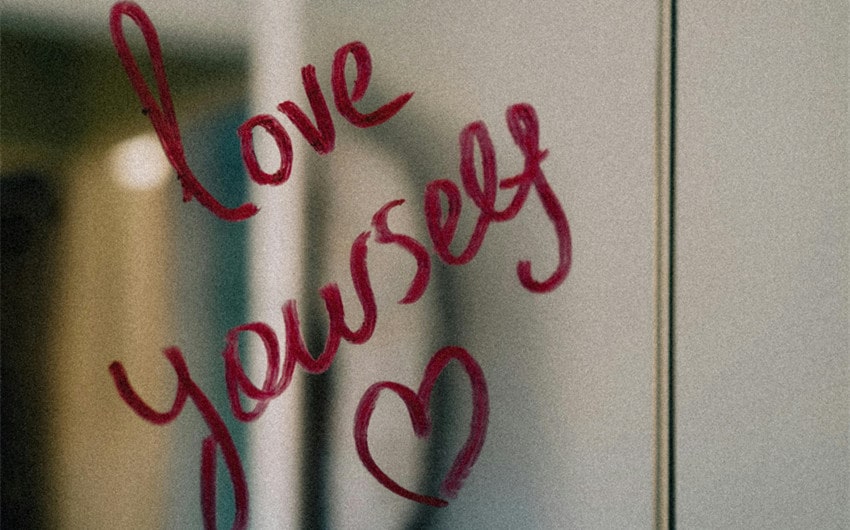Why Do I Lie So Much: 6 Causes and 5 Solutions
If you’ve ever wondered, “Why do I lie so much?” You’re not alone. Many people find themselves telling little lies or even bigger ones without always understanding why. Lying can become a habit driven by a variety of motivations—self-protection, fear of judgment, or even a desire to please others.
In this article, we’ll explore some of the most common reasons behind excessive lying and how these behaviors develop. By understanding these motivations, you can take steps toward building more honest connections and breaking free from a habit that often brings more harm than good.
Common Reasons People Lie

Lying is a complex behavior with many underlying motivations. While some lies are told to avoid consequences, others may be habitual, born from insecurity, or even intended to protect loved ones from discomfort. Understanding the specific reasons people lie can offer insight into why it’s challenging to break the habit and how each reason serves a different psychological purpose.
1. Self-Protection
Avoiding Consequences: One of the most common reasons for lying is to protect oneself from perceived harm, such as punishment, criticism, or embarrassment. For example, a person may lie about missing a deadline to avoid disappointing a boss or client.
Shielding Personal Vulnerabilities: Some lies are told to protect personal vulnerabilities, keeping others from seeing insecurities or weaknesses. For instance, someone may lie about their financial situation to avoid judgment or pity. This type of lying often stems from fear and can make a person feel isolated.
Self-Preservation: In situations where people feel threatened, lying can become an instinctive defense mechanism, helping them maintain control over how they’re perceived. Unfortunately, this form of self-protection can become habitual, creating a cycle of dishonest behavior.
2. People-Pleasing
Gaining Approval: People who are highly motivated to gain others’ approval might lie to create a more favorable impression or avoid disappointing others. They might exaggerate accomplishments or agree with opinions they don’t hold to fit in. This behavior is often rooted in a desire for acceptance and validation.
Avoiding Conflict: To maintain harmony, some people tell “white lies” to avoid conflict. For example, they may say they’re not upset when they actually are, or they might tell a friend they like their outfit when they don’t. This type of lying is often seen as harmless, but over time it can create a disconnect in relationships.
Protecting Others’ Feelings: People-pleasers often lie to spare others’ feelings, fearing that honesty might cause hurt or disappointment. While this motivation may seem noble, it can lead to emotional strain, as they constantly prioritize others’ feelings over their own.
3. Insecurity and Low Self-Esteem
Projecting a Positive Image: Insecure individuals may lie to portray a certain image, often to mask feelings of inadequacy. They might exaggerate successes, fabricate stories, or even downplay failures to gain social acceptance or feel valued.
Fear of Not Measuring Up: Lies can emerge from the fear that one’s true self isn’t “good enough.” For instance, someone might lie about their achievements to seem more successful than they feel. This need to impress or match up with others can lead to a cycle of habitual lying.
Seeking Validation: Lying to receive validation can be a temporary fix for low self-esteem. If a person receives positive reinforcement for their fabrications, they may feel momentarily uplifted, reinforcing the habit as a means to cope with self-doubt.
4. Desire for Control or Manipulation
Influencing Situations: Some individuals use lies to manipulate situations in their favor, often aiming to control outcomes. For example, they may lie about their availability to avoid certain commitments, ensuring they maintain control over their schedule.
Directing Others’ Perceptions: Lies can be used to shape how others see a person, especially if the individual wants to hide certain behaviors or intentions. This tactic might be employed to win trust or sympathy, even if the relationship is based on dishonesty.
Getting Desired Outcomes: People who lie for control or manipulation often seek specific results, such as financial gain, social status, or romantic interest. These lies are typically calculated rather than impulsive and can have significant consequences if uncovered.
5. Habitual or Compulsive Lying
Developing a Habit: For some, lying becomes a deeply ingrained habit over time. Small lies may snowball into more significant ones, with lying becoming an almost automatic response. This habitual lying can happen without any clear, conscious intention to deceive.
Compulsive Lying (Pseudologia Fantastica): Compulsive lying, also known as pathological lying, refers to a pattern of frequent, often unnecessary lies. Unlike typical lies told for a specific reason, compulsive lies may have no clear motivation or benefit, sometimes creating more complications for the liar.
Blurred Lines Between Truth and Falsehood: Habitual or compulsive liars may struggle to keep track of their own stories, blurring the line between truth and falsehood. This can lead to confusion and difficulty distinguishing between reality and lies, affecting relationships and personal credibility.
Steps to Reduce Lying Habits

Breaking the habit of lying is challenging but entirely possible with self-awareness, patience, and consistent effort. By understanding the motivations behind the lies and taking deliberate steps toward honesty, you can rebuild trust, gain confidence, and foster stronger relationships. Here are some actionable steps to help reduce lying habits:
1. Self-Reflection and Honesty
- Identify Triggers for Lying: Start by paying attention to situations where you feel compelled to lie. Are you lying to avoid judgment, to please someone, or to cover up insecurity? Recognizing patterns in these moments will help you understand the underlying triggers.
- Assess the Costs of Lying: Reflect on how your lies may have affected your relationships, reputation, or self-worth. This assessment can increase your motivation to change by helping you see the impact of dishonesty on your life.
- Practice Radical Honesty with Yourself: The journey to truthfulness begins internally. Spend time examining and accepting your own thoughts and feelings, even when they’re uncomfortable. Journaling can help, as it allows you to express your true thoughts without judgment.
2. Setting Personal Goals for Truthfulness
- Start with Small Truths: Begin by committing to honesty in low-stakes situations where you feel less pressure to lie. This gradual approach will help you build confidence in speaking the truth.
- Create Specific, Achievable Goals: Set small, measurable goals, like going a day without lying or being completely honest in certain conversations. Track your progress to stay accountable and celebrate each step toward change.
- Use Positive Affirmations: Affirmations like “I am truthful and trustworthy” can reinforce your commitment to honesty. Repeating these affirmations can help shift your mindset from seeing honesty as a challenge to embracing it as a core value.
3. Seek Support and Therapy
- Find a Trusted Friend or Accountability Partner: Share your goal to reduce lying with a trusted person who can hold you accountable without judgment. Having someone to check in with can make a big difference in keeping you motivated and honest.
- Consider Professional Therapy: A therapist can help you uncover deeper reasons for lying and provide tools to cope with any fears or insecurities behind it. Therapy can be particularly helpful if lying has become compulsive or if it’s linked to unresolved emotional issues.
- Engage in Group Therapy or Support Groups: Group settings can offer valuable insight from others who may struggle with similar issues, providing you with additional support and a safe space to discuss your challenges.
4. Practicing Self-Compassion and Accountability
- Accept Mistakes Without Judgment: Breaking the habit of lying is a process, and it’s normal to slip up along the way. Rather than being hard on yourself, view each misstep as an opportunity to learn and improve.
- Hold Yourself Accountable: Acknowledge each lie as it happens, even if only to yourself. By admitting when you’re dishonest, you strengthen your awareness and commitment to reduce lying.
- Celebrate Progress, Not Perfection: Small wins, like being honest in a conversation where you might typically lie, deserve recognition. Rewarding yourself for these moments helps reinforce positive change and keeps you motivated.
5. Building Confidence and Self-Worth
- Challenge Negative Self-Talk: Many lies stem from insecurity or a desire to fit in. By actively challenging negative thoughts about yourself, you can reduce the impulse to lie and instead embrace who you truly are.
- Embrace Vulnerability: Being honest requires vulnerability, which can feel uncomfortable but is key to building trust. Gradually allow yourself to be open about your feelings, knowing that authenticity fosters stronger relationships.
- Celebrate Honest Wins: Recognize and celebrate every instance where you chose honesty over a lie. Each truthful moment builds your confidence in your ability to be authentic, reinforcing that you don’t need lies to feel valued or accepted.



